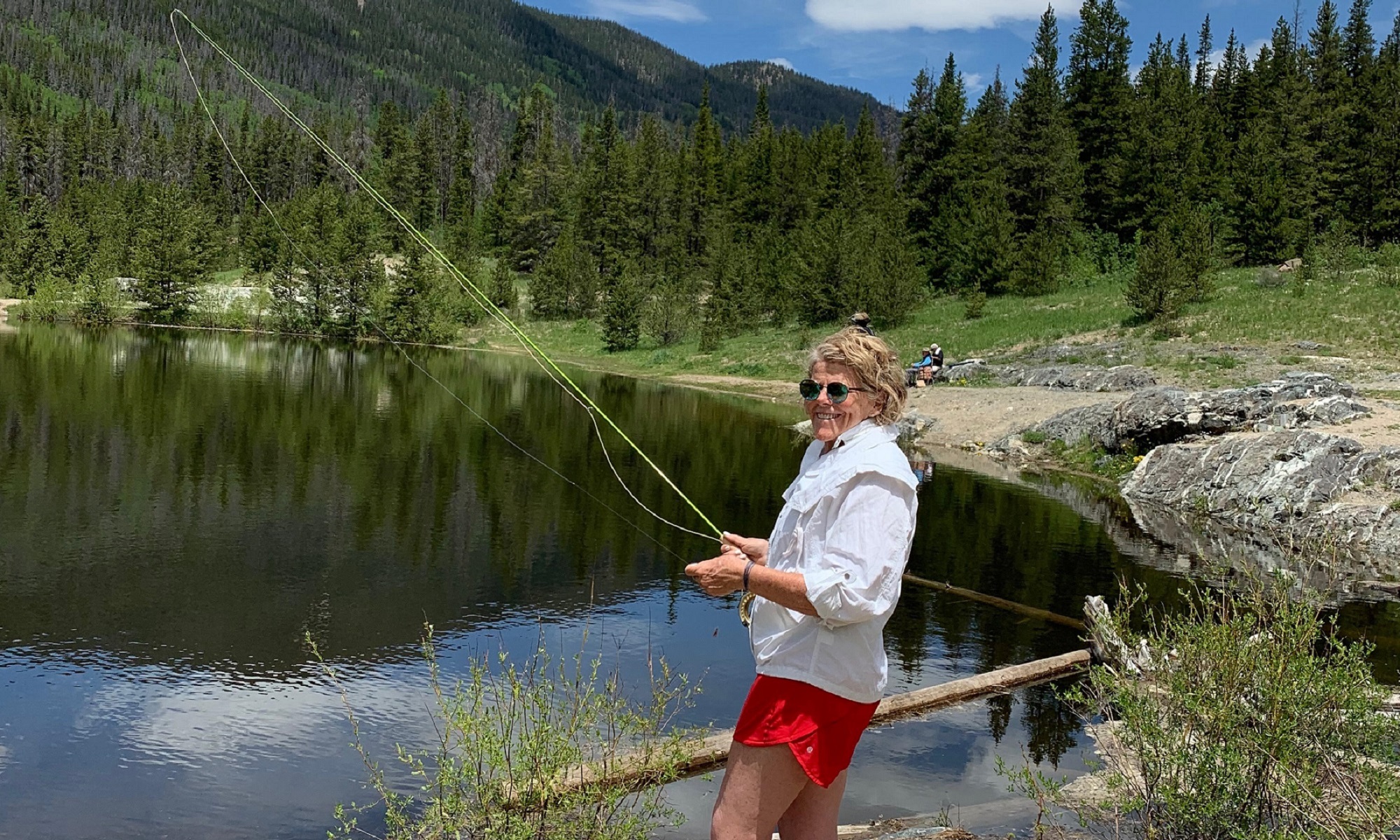We need real human connection now more than ever.
I remember, maybe 9 months ago, just crying. I felt so lonely (did I mention that I live with my husband and 2 sons?) — there’s nothing quite like feeling lonely when you aren’t actually alone.
For me, I missed girlfriends and casual acquaintances I’d come to depend on, at the gym, the break room, and my team at work. People who knew me (or didn’t), who shared interests or cared in ways that were different from my family asking (with love) about the next meal.
Even though it seems we’re always connected thanks to social media and our smartphones, that notion couldn’t be further from the truth. A recent survey revealed that over 3 in 5 Americans are lonely. To make matters worse, this feeling of isolation has substantially increased since the start of the Covid-19 pandemic.
Loneliness occurs when there’s a lack of genuine human connection to other people. But what does human connection mean, really?
Let’s consider the human connection definition, why the power of human connection is important in our lives, and how to build meaningful relationships with others.
What is human connection?
Human connection is a deep bond that’s formed between people when they feel seen and valued. During an authentic human connection, people exchange positive energy with one another and build trust.
Human connection makes you feel heard and understood and gives you a sense of belonging.
Why is human connection so important?
Human beings are social species, wired to connect.
According to Maslow’s Hierarchy of Needs, besides food, water, and safety, love and belonging are the most important needs we must fulfill. This includes our desire for interpersonal relationships, intimacy, to connect with others, and to be integrated into a group. When these needs are met, our overall well-being improves, and we live a more fulfilled life.
The 2021 World Happiness Report found that people who experienced an increase in connectedness with others during the pandemic had:
-
-
- Greater life satisfaction
- More resilience
- Better mental health
Having a strong support system helps people overcome challenges more easily and maintain a state of mental well-being.
The human connection also decreases health risks and improves physical well-being and longevity. Strong social connections strengthen the immune system and increase your chances of a longer life by 50%.
What is loneliness, and what does it feel like?
Loneliness doesn’t necessarily mean being alone.
Loneliness is a state of mind that occurs when there’s a disconnect between one’s desire for human connection and their actual level of connection. In other words, it’s when our longing for human relationships is unfulfilled.
Loneliness can be found anywhere. Someone can have many social interactions but feel lonely because they lack a real connection with those around them. Others have close relationships with friends and family but long for an intimate connection with a partner.
While everyone can experience loneliness differently, it often manifests as social isolation, feeling left out, unheard, or not belonging. If left unchecked, it can also have serious effects on your emotional well-being and physical health.
According to psychologist Amy Sullivan, PsyD, your level of cortisol, a stress hormone, goes up when you’re lonely. Chronic stress can lead to many health issues, including heart disease and cancer. Because of its many health risks, recent studies compare loneliness to smoking 15 cigarettes per day.
How to cope with loneliness
Dealing with loneliness isn’t easy. For one thing, it builds on itself. Loneliness accumulates and we convince ourselves that it is huge and insurmountable. It makes you feel strange and off, even to yourself. It can feel embarrassing, as an otherwise functioning adult, to admit, even to yourself, that you are lonely. In our empowered, hustle, made-for-IG world, admitting to loneliness feels like a failure.
It can feel hard, almost impossible to break out of the state of loneliness, but it’s a state that can be overcome, surprisingly easily. Loneliness is highly susceptible to action. Here are some ways to combat loneliness and strengthen your connection to society.
Talk to someone
The stigma surrounding asking for support has reduced since the onset of the pandemic. This is thanks to increased awareness of mental health. Seeking help is one of the bravest and most helpful steps you can take to overcome loneliness and the feelings that come with it.
A mental health counselor can offer helpful advice and guide and support you to build healthy relationships and meet new people. Speaking to a professional also equips you with the coping strategies you need to navigate and overcome feelings of chronic loneliness.
Take initiative
It might sound obvious, but loneliness thrives in solitude. Loneliness can make you feel unwanted and isolated from those around you. To break out of this negative mindset, you have to take the initiative and put yourself out there.
Be proactive and reconnect with friends and family, or build new relationships. Call an old friend, join a club, or take your colleagues out for a drink. Make your well-being a priority and try new activities to build fulfilling human connections.
Give back to others
Volunteering is a meaningful way to connect with others, make friends, and feel a sense of purpose in your life. Giving back to those in need also amplifies your sense of gratitude and well-being.
In a recent UK survey of more than 10,000 people, 2 out of 3 said volunteering helped them feel less isolated. Volunteering opportunities introduce you to a new set of people with similar goals and values. It also gives you a sense of meaning that’s often lost when you lack human connections.
How do you make human connections? 6 ways to feel more connected
Making human connections sometimes requires being brave and taking chances. For example, striking up a conversation with someone new can be intimidating, especially if you’re shy. It requires you to step out of your comfort zone despite feeling nervous.
Ultimately, the rewarding feeling of building human connections far outweighs the initial fear you may feel when you put yourself out there. Let’s look at six simple ways you can integrate into society.
1. Surround yourself with people with shared interests
It’s easy to bond with people who share the same interests and hobbies as you.
If you love reading, joining a book club can be a great way to socialize and form new friendships with people that share your love of books.
Or, if you’re a runner who likes to stay active, joining a local running club could be an opportunity to meet new people.
2. Overcome your resistance
Building relationships is often intimidating because of a natural fear of rejection. But to make these connections, we have to overcome our resistance to change and embrace situations outside our comfort zone.
3. Smile (once in a while) and try out a positive attitude
First impressions count. Trying to have a generally positive demeanor and a genuine smile will naturally draw people to you. That doesn’t mean you have to be positive all the time or blindly optimistic. But it’s helpful to do a gratitude exercise and spend a few minutes noticing what is good in your life prior to spending time around others. Research shows people are more drawn to positive emotions than negative ones when it comes to forming social connections.
So if you want to maximize your chances of being a people magnet, put your best self forward.
4. Open up to others
If you want to make friends more easily, allow yourself to be more vulnerable with others. That doesn’t mean dropping all filters or boundaries. Too much, too soon can put others off and leave you feeling more alone. But you also don’t have to be a curated version of yourself.
People can sense whether someone is genuine or not, so let them see the most authentic version of you. Your vulnerability will also prompt them to feel comfortable around you and connect with you on a deeper level.
5. Don’t hide in your phone
It’s easy to retreat into our smartphones when we’re feeling uncomfortable in a social situation. But this can hinder our ability to make real-life connections.
For example, being on your phone during a party or while networking will make you seem less approachable. Whenever you’re out, focus on being present and engaging with the people around you.
6. Stay in touch
The human connection needs to be nurtured. For example, if you’ve made a new friend, keep in touch with them and grow your friendship. At the same time, work on maintaining your existing relationships with close friends, family, or team members.
Regular contact deepens your connections with others and ensures you don’t lose touch with those you value most.
How to build a lasting human connection
If you’ve ever felt lonely, you’re not alone. Many people experience or have experienced a lack of human connection at some point in their lives.
The key to overcoming loneliness and living a more fulfilling, happier life is to challenge yourself and look for opportunities to build genuine connections with those around you.
This can be anything from joining a club, reconnecting with an old friend, or volunteering for a cause you believe in.
Source: betterup.com ~ By: Maggie Wooll ~ Image: Canva Pro



